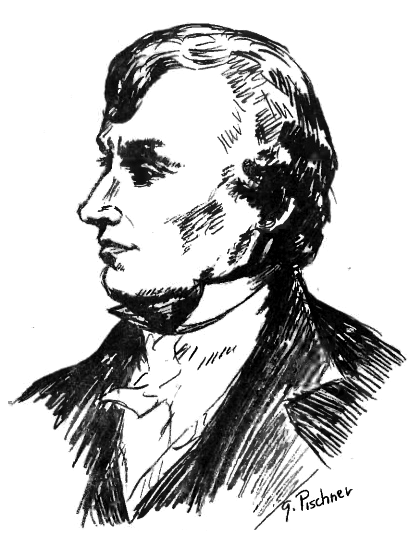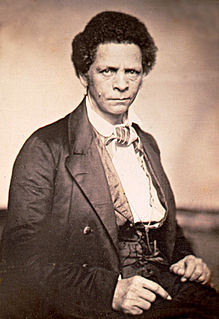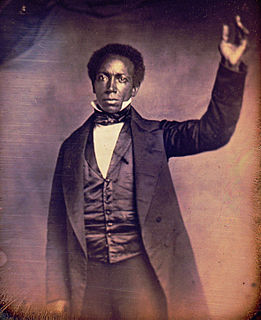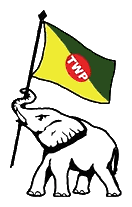
Liberia is a country in West Africa which was founded, established, colonized, and controlled by citizens of the United States and ex-Caribbean slaves as a colony for former African American slaves and their free black descendants. It is one of only two sovereign countries in the world that were started by citizens and ex-Caribbean slaves of a political power as a colony for former slaves of the same political power, the other being Sierra Leone, established by Great Britain. Settlement of former slaves was organised by the American Colonization Society (ACS). The mortality rate of these settlers was the highest in accurately recorded human history. Of the 4,571 emigrants who arrived in Liberia from 1820 to 1843, only 1,819 survived until 1843.

Politics of Liberia takes place in a framework of a presidential representative democratic republic modeled on the government of the United States, whereby the President is the head of state and head of government; unlike the United States, however, Liberia is a unitary state as opposed to a federation and has a pluriform multi-party system rather than the two-party system that characterizes US politics. Executive power is exercised by the government. Legislative power is vested in both the government and the two chambers of the legislature.
Americo-Liberians, or Congo people or Congau people in Liberian English, are a Liberian ethnic group of African American, Afro-Caribbean and Liberated African descent. The sister ethnic group of Americo-Liberians are the Sierra Leone Creole people, who shared similar ancestry and related culture. Americo-Liberians trace their ancestry to free-born and formerly enslaved African Americans who emigrated in the 19th century to become the founders of the state of Liberia. They identified there as Americo-Liberians. Although the terms "Americo-Liberian" and "Congo" had distinct definitions in the nineteenth century, they are currently interchangeable and refer to an ethnic group composed of the descendants of the various free and ex-slave African American, Caribbean, Recaptive, and Sierra Leone Creoles who settled in Liberia from 1822.

The Society for the Colonization of Free People of Color of America, commonly known as the American Colonization Society (ACS), was a group established in 1816 by Robert Finley of New Jersey which supported the migration of free African Americans to the continent of Africa. The society in 1821–1822 helped to found a colony on the Pepper Coast of West Africa, as a place for free-born or manumitted American blacks. The ACS met with immediate and continuing objections from such African-Americans as James Forten and David Walker, who wished to remain in the land of their birth, saw colonization as a racist strategy for protecting slavery and purging the U.S. of its black citizens, and preferred to fight for equal rights at home. Colonizers were also met with resistance and attacks from those already living in and around the areas being colonized. There was some religious support and missionary efforts were part of the colonization. Disease was a major problem, with Liberian immigrants suffering the highest mortality rates in accurately recorded human history. Of the 4,571 emigrants who arrived in Liberia from 1820 to 1843, only 1,819 survived until 1843.

Joseph Jenkins Roberts was the first (1848–1856) and seventh (1872–1876) President of Liberia. Born free in Norfolk, Virginia, US, Roberts emigrated to Liberia in 1829 as a young man. He opened a trading store in Monrovia, and later engaged in politics. When Liberia became independent on July 26, 1847, Roberts was elected the first black American president for the Republic of Liberia, serving until 1856. In 1872 he was elected again to serve as Liberia's seventh president.

Arthur Barclay was the 15th President of Liberia, serving from 1904 to 1912.

Ellen Johnson Sirleaf is a Liberian politician who served as the 24th President of Liberia from 2006 to 2018. Sirleaf was the first elected female head of state in Africa.

The Legislature of Liberia is the bicameral legislature of the government of Liberia. It consists of a Senate – the upper house, and a House of Representatives – the lower house, modeled after the United States Congress. Sessions are held at the Capitol Building in Monrovia. Legislature of Liberia is considered one of the three branches of government based on the Article III of the Constitution of Liberia that stipulates all three branches ought to be equal and coordinated based on the Principle of checks and balances.

Hilary Richard Wright Johnson served as the 11th President of Liberia from 1884 to 1892. He was elected four times. He was the first Liberian president to be born in Africa. He had served as Secretary of State before his presidency, in the administration of Edward James Roye.

The Vice President of the Republic of Liberia is the second-highest executive official in Liberia, and one of only two elected executive offices along with the President. The Vice President is elected on the same ticket with the president to a six-year term. In the event of the death, resignation or removal of the president, the Vice President ascends to the presidency, which he or she holds for the remainder of their predecessor's term. The Vice President also serves as the President of the Senate and may cast a vote in the event of a tie. The current Vice President is Jewel Taylor, serving under President George Weah. She began her term on January 22, 2018.

James Skivring Smith was a Liberian politician who served as the 6th President of Liberia from 1871 to 1872. Prior to this, he served as the 8th Vice President of Liberia from 1870 to 1871 under President Edward James Roye and as Secretary of State from 1856 to 1860 in the cabinet of President Stephen Allen Benson. He was a member of the True Whig Party.
The Republican Party, early named Liberian Party, was a political party founded soon after the founding of Liberia in 1848. It was known to be made up primarily of Americo-Liberians who had mixed African and European ancestry. Its main opponent was the True Whig Party.
The Back-to-Africa movement, also known as the Colonization movement or After slave act, originated in the United States during the 19th century. It encouraged those of African descent to return to the African homelands of their ancestors. This movement would eventually inspire other movements, ranging from the Nation of Islam to the Rastafari movement and proved to be popular among African Americans.

A referendum to amend the Constitution of Liberia was held on 23 August 2011. Voters chose whether to ratify four amendments regarding judge tenure, elections scheduling, presidential candidate requirements and the electoral system. The National Elections Commission of Liberia (NEC) oversaw the referendum.

Presidential elections were held in Liberia in May 1867. The result was a victory for James Spriggs Payne of the Republican Party, defeating Opposition Party candidate Edward James Roye. The election was very close, with the House of Representatives required to decide the final outcome.

A referendum on the length of terms of office was held in Liberia on 4 May 1869. The proposals put forward by Parliament on 29 January 1869 would increase the presidential term from two to four years, increase the term of House of Representatives members from two to four years, and increase the term of office of Senators from four to eight years. President-elect Edward James Roye claimed that the changes were approved and that he would remain in office until 1873. However, the legislature, which oversaw the counting process, declared the proposals to be rejected.
William Spencer Anderson was an American-born Liberian politician and explorer. Originally a barber, Anderson emigrated to Liberia at the age of 20 and within five years had inherited a sugar plantation. He expanded the business and became the largest producer of sugar and coffee in Liberia. Entering politics with the True Whig Party Anderson was selected to be Speaker of the House of Representatives from 1869 to 1871. He undertook an expedition to drive a road from Monrovia to Moussodougou in what is now Burkina Faso but he was forced to abandon the attempt. Returning to Monrovia, Anderson successfully negotiated a $500,000 loan for the government from British financiers. However he received criticism for the terms of the loan and was arrested. He was assassinated on 27 September 1872.
The Edward J. Roye Building is a wrecked skyscraper on Ashmun Street in the commercial district of Monrovia, the capital city of Liberia. Constructed as the headquarters of the True Whig Party, it was renamed the "E.J. Roye Memorial Building" in 1964. It is one of the most prominent buildings in the city. In the building's earlier years, it included a grand auditorium, and before the 1980 coup d'état, it hosted government meetings such as sessions of the Legislature in 1975, as well as non-governmental conventions such as the Liberian Federation of Trade Unions in 1977. It sits in the heart of the city's pre-coup commercial district, near locations such as the former offices of the American Colonization Society.










